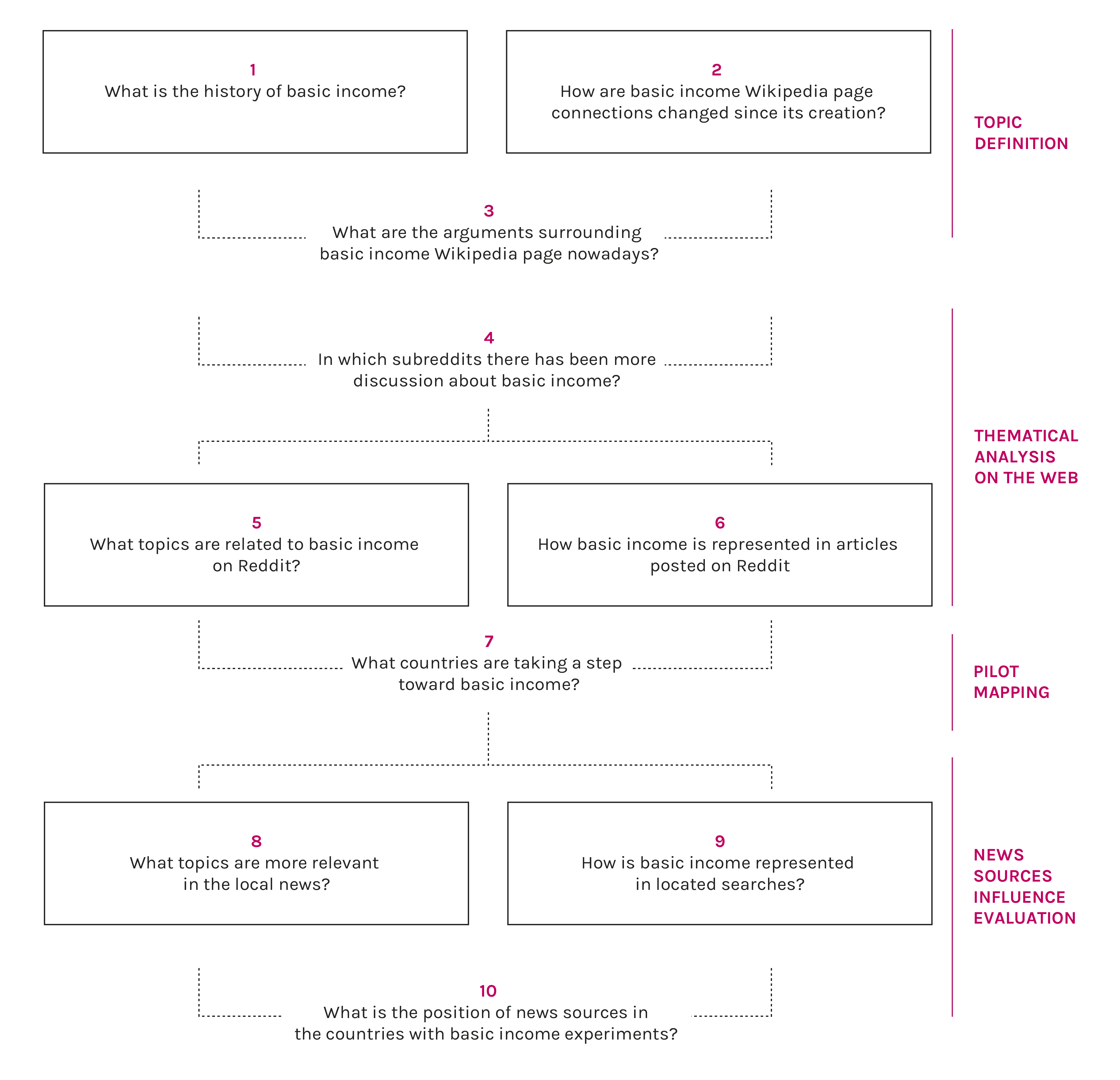By Matteo Testa, Matteo Sacchi, Irina Kasatkina,
Giorgio Falvo, Nicolas Attolico
UBIquity
A basic income, also called basic income guarantee, unconditional basic income, universal basic income (UBI), is a form of social security in which all citizens or residents of a country receive a regular unconditional sum of money. It could come from a government or some other public institution, independent of any other income. Basic income systems that are financed by the profits of publicly owned enterprises (often called social dividend, also known as citizen's dividend) are major components in many proposed models of market socialism. Basic income schemes have also been promoted within the context of capitalist systems, where they would be financed through various forms of taxation. Similar proposals for "capital grants provided at the age of majority" date to Thomas Paine's Agrarian Justice of 1795, there paired with asset-based egalitarianism. The phrase "social dividend" was commonly used as a synonym for basic income in the English-speaking world before 1986, after which the phrase "basic income" gained widespread currency. The idea of basic income strictly belongs to the political and social semantic area but is the need for a universal basic income becoming more apparent as the world makes strides in technological advancement? In what measure? and if the risks of job-replacement by machines are real are there some States or Institution that we can consider pilots? How is the Institutional Media speech about the argument and how informed people feel the debate? The research was directed on the web to answer the previous questions, to understand the evolution of the idea of basic income and its relation with the technological advancement, to establish who are the actors in these issue and try to analyze the communication systems of the latter and the public. Because of his separate themed structure Reddit was chosen to represent a informed split of web users.
research roadmap
